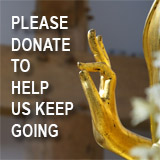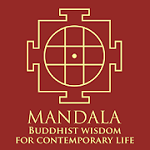
|
|
|
Home Asia Pacific South East Asia Myanmar Myanmar Protest News Burma: A Land Where Buddhist Monks Are Disrobed and Detained in DungeonsA Report by the AAPP (Assistance Association for Political Prisoners (Burma)), The Buddhist Channel, Oct 7, 2007Bangkok, Thailand -- In Burma, anyone can be detained for being involved in human rights advocacy, democratic activities or peaceful demonstrations. Thus, political activists are not the only stratum of society vulnerable to arrest by the military intelligence, Buddhist monks are also subject to the same fate. It is estimated that there are approximately 300 monks and novices in Burma’s prisons, whereas the number of political prisoners lingers at about 1,400 to date (Editor's note: Figure released before the mass protests).
Since the pro-democracy uprising occurred in 1988, the military regime has constantly attempted to crackdown on all strata of society including Buddhist monks who are assumed to be potentially significant revolutionary forces. During the demonstrations that occurred in August and September 1988, the regime killed masses of peaceful demonstrators including monks, students and civilians. Although Buddhist monks have been involved in the movement by non-violent means, they Almost all the lawsuits concerning such arrests have been tried secretly without granting the accused any rights to seek legal counsel. Trials have been perfunctory; the so-called judges just read out the charges. While the accused is asked to plead guilty or not, the court announces its verdict which has invariably been one of guilt. Most of the monks, including novices, that were arrested were charged under Section 5 (J) Aside from these Acts, Buddhist monks are vulnerable to arrest and charge under other Acts described in the Penal Code. In October 1990, immediately after the monks boycott of the regime began, the regime created ‘ The Law Concerning the Sangha Organizations’ or Sangha Organization Law, an intrusion of the state in Sangha affairs. Subsequently, more than 200 monks and novices were found to be guilty of contravening these rules and regulations and were stripped of their monkhood that year. Since the ‘Sangha Organization Law’ describes all nine Sangha Sects as members of the State Sangha Organization, every monk, or member of Sangha, has no alternative but to abide by all the rules and regulations pronounced by the regime. In brief, all the orders and decrees the military regime has issued are designed to keep monks under tight control and thwart them from being involved in any social movements. According to Buddhist principles, disrobing a monk forcibly cannot alter him into an ordinary laymen unless he himself chooses to be. Many monks who were arrested and imprisoned adhered to the principles of monkhood and never assumed that they had become laymen because they were disrobed. However, the authorities concerned in Burma, particularly those in military interrogation camps and inside prisons, treated the disrobed monks inhumanely as they considered the monks to be common criminals as they were no longer in their robes. This report attempts to reveal some of the most offensive incidents perpetrated by a military regime, which is pretending to be the most pious government to ever rule in modern Burmese history. It should be noted that the data and information included in this report is only a sampling of incidents from a decade of arrests as the researchers faced difficulties in obtaining information from inside sources. However, the reliability of the information included in this report is unarguable. This report serves to voice previously unheard voices that have been suppressed since these episodes transpired in Burma. Through the publication of this report, we hope to provide an opportunity for these voices to be heard. “Recommendations” We, the Assistance Association for Political Prisoners (Burma), therefore make the following recommendations: To the State Peace and Development Council (SPDC):
To the international community at large:
To Sangha Organizations around the world:
To view the report in detail, click on link to download: http://www.aappb.org/monkreport.pdf |
 Get your Korean Buddhist News here, brought to you by BTN-Buddhist Channel |
 |
 The Mandala app brings together Buddhist wisdom and meditation techniques with the latest insights of psychology and neuroscience to handle the challenges and complexities of modern life. The App offers a series of engaging talks and conversations with experts on a wide variety of topics, such as managing stress, dealing with adversity, developing greater resilience, cultivating empathy and compassion, creating healthy relationships, and many more. These topics are explored to help find greater peace, meaning and joy in our lives. Our panel of experts include Dr, Thupten Jinpa, Daniel Goleman, Kelly McGonigal and others.FREE DOWNLOAD here |
| Point
your feed reader to this location |
| Submit an Article |
| Write to the Editor |


